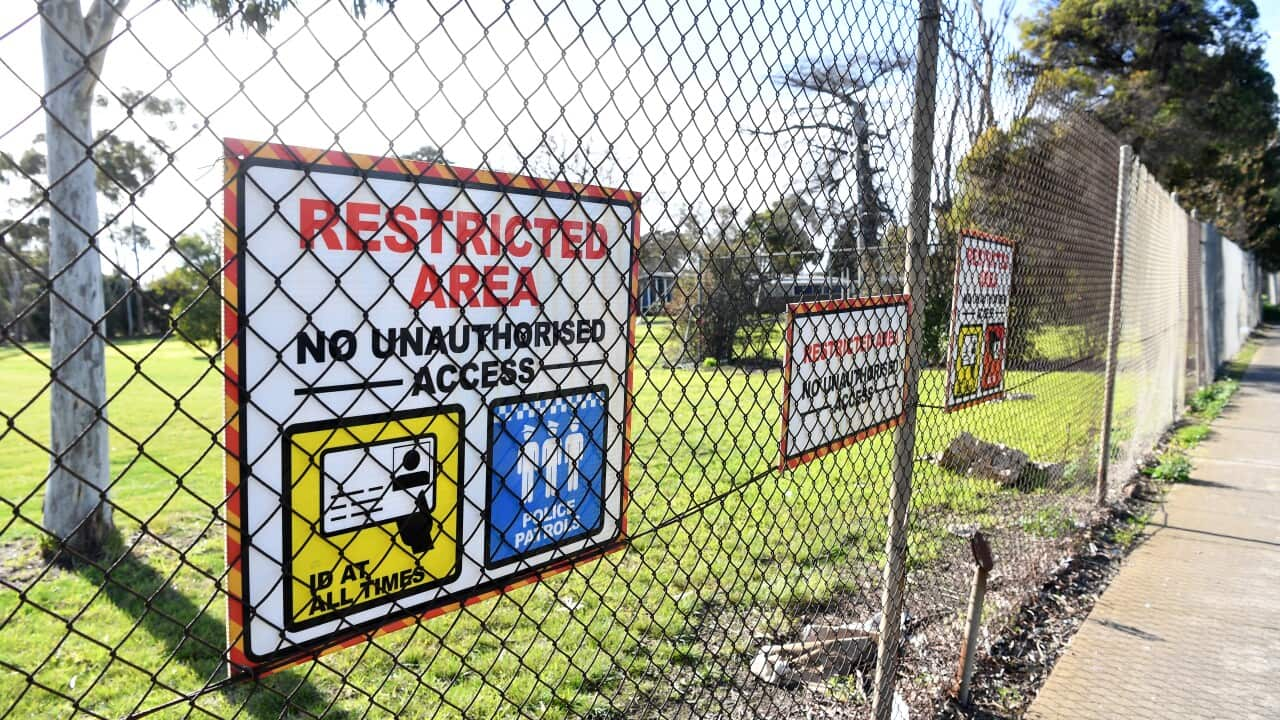Australia is the only home Kayban Jamshaad has ever known.
But despite the eight-year-old being born here, his parents have had to repeatedly fight the migration system for him to be allowed to stay.
The reason? His perceived cost to Australian taxpayers.
Kayban has several medical conditions and disabilities, including a brain injury he acquired during his birth at a hospital in Bunbury, Western Australia, in 2016 and severe haemophilia.
Before he was born, Kayban's parents had been planning to move back to the Maldives — but his complex care needs forced them to reconsider.
"As much as it's a beautiful country, it's a very small country, so a lot of our medical needs are either like a basic level managed within the country, but then we go abroad for other medical needs," Kayban's mother Shizleen Aishath told SBS News.
"I could see straight away that I couldn't take him back home because that wasn't going to work for him."

Kayban Jamshaad has several medical conditions and disabilities, including an acquired brain injury he obtained during his birth at a Bunbury hospital in 2016 and severe haemophilia. Source: Supplied
But while the Department of Home Affairs approved Shizleen, her husband Ahmed, and their two other children Khaalil and Kyara's visa applications, Kayban's was rejected.
, which ensures applicants don't have a condition that could require care and/or community services that cost a significant amount of money or are in short supply.
The significant cost threshold at the time was $49,000, over the period of a visa. In July this year, it was increased to $86,000.
'Black and white' migration system
Shizleen said while she understood the reasons for protective mechanisms, the system shouldn't be so "black and white".
"Everybody doesn't fit into the same box," she said.
"(Kayban's) case is so much more unique because what's happened to him has happened here."
and successfully argued that the health requirement should be waived because they were paying for Kayban's medical treatments.
But when that visa expired and they applied for another one, Kayban's application was rejected for the same reason.
"We were provided the opportunity to appeal the process, in the first instance, within the department," Shizleen said.
"He managed to get through, I guess because it was the same visa and we had proven what had happened and that we could take care of him on our own accord and he was not going to be a cost to the system."

Kayban (centre, pictured with his brother Khaalil and sister Kyara) has had to battle to stay in Australia for most of his life. Source: Supplied
"Up until now, because we've been on temporary visas, our whole argument has been, 'We're footing the bills, so why is anybody complaining? We're not a cost to the system. We're both working members of the society and we are contributing, but on top of that we take care of our child's needs'," she said.
"But then obviously for permanent residency because he would be eligible for Medicare, my biggest fear was I wouldn't have a leg to stand on or an argument to go, 'Hey, he's actually not a cost to the system', because he technically is, and the humanness gets taken away, becomes a cost.
"He's always made the cost on paper, the whole process through the last eight years, but I felt like I didn't have the ability to defend him or protect him next time."
'A fair go'
Shizleen's fear was eased this week when the federal government quietly waived the health requirement for child visa applicants who were born in Australia and have lived here for more than half of their life.
Shizleen said while the change hasn't sunk in yet, it means her family and others like them will now get "a fair go".
"We're not disadvantaged to begin with [anymore], against a system that we have no power in," she said.
"Now, I'm going to be having the same opportunity as anybody else applying for a PR (permanent residency), despite having a child with disabilities."

Shizleen (pictured with Kayban when he was younger) said her family would now get "a fair go". Source: Supplied
The campaign's migration policy advisor Jan Gothard described this week's changes as "a significant step in the right direction".
"This reform was flagged in the and will create a fairer, more inclusive migration system for children born in Australia with disabilities or health conditions, ensuring that their families have equitable access to the visa process," she said in a statement.
But Welcoming Disability noted the government was still yet to address other concerns about the migration system's treatment of people with disabilities and health conditions, raised by a federal parliamentary Joint Standing Committee report in 2010, the United Nations in 2019, and the disability royal commission.
"It's time for the government to stop reducing people to a fiscal number and failing to acknowledge the value of the immense economic and social contributions that people with disabilities and health conditions and their families make throughout Australia every single day," Gothard said.
"The notion that people with disabilities or health conditions do not live full lives, contribute less to our society and are a net burden reinforces the widespread stigma and discrimination that they already face."
SBS News has contacted the Department of Home Affairs for comment.












